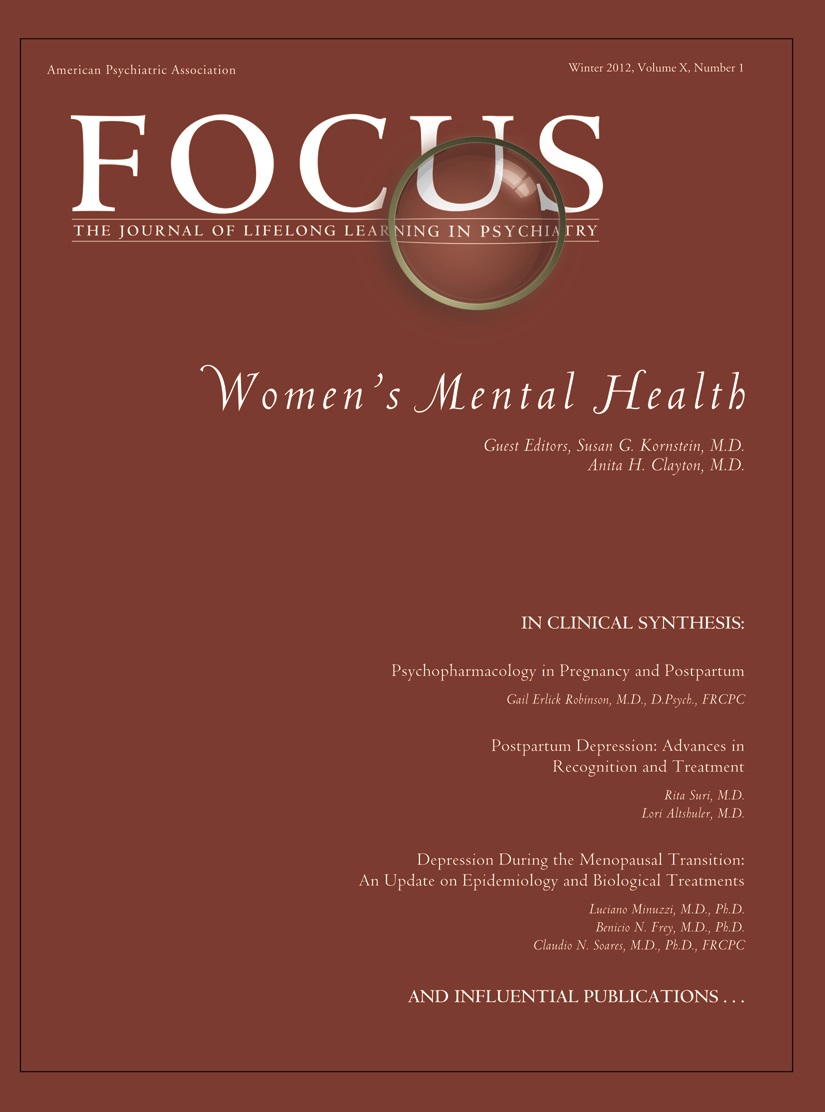Summary of the National Institute on Aging-Sponsored Conference on Depressive Symptoms and Cognitive Complaints in the Menopausal Transition
Abstract
Objective: The National Institutes of Health and The North American Menopause Society sponsored a symposium to understand the impact of the menopausal transition on mood symptoms and cognitive disorders and to identify research priorities for further investigation. Methods: The symposium was divided into a morning session on depressive symptoms and an afternoon session on cognitive function. There were four speakers per session, and each session covered four methodological approaches, including longitudinal cohort studies, randomized intervention trials, pharmacological challenge studies, and clinical diagnosis. Interactive panel discussions focused on translating research findings to clinical practice. Results: Most women do not experience serious depressive symptoms during the menopausal transition, but a subgroup of women is at increased risk. Slight changes in memory function and processing speed are evident during the menopausal transition, and physiological factors associated with hot flashes may contribute to memory problems. Clinical trial evidence indicates that estradiol therapy can be effective in treating perimenopausal depression. There is some limited evidence of a cognitive benefit with estrogen-alone therapy in younger postmenopausal women and stronger evidence that certain forms of combination hormone therapy produce modest deficits in verbal memory in younger postmenopausal women. Conclusions: Routine evaluation of depressive symptoms in perimenopausal women is warranted by the literature. Quick and valid screening tools for assessing depression in the clinic are available online and free of charge. Identifying a cognitively neutral or beneficial combination therapy for the treatment of menopausal symptoms in naturally postmenopausal women is an important goal for future research.
(Reprinted with permission from Menopause 2010; 4:815–822)



